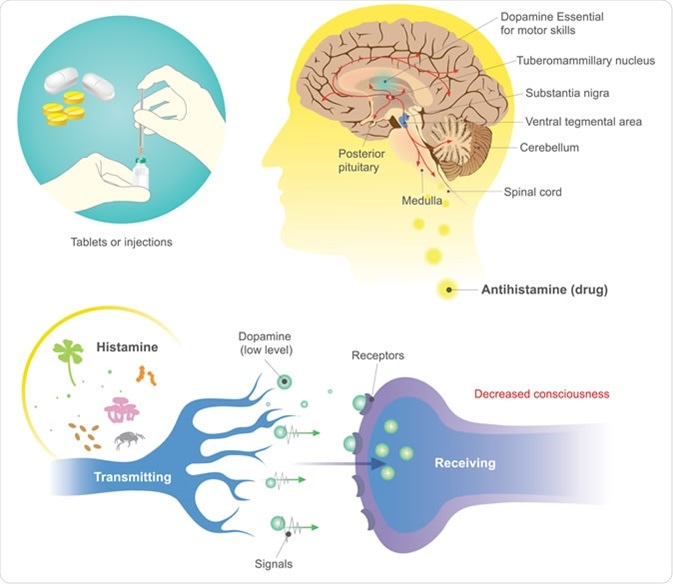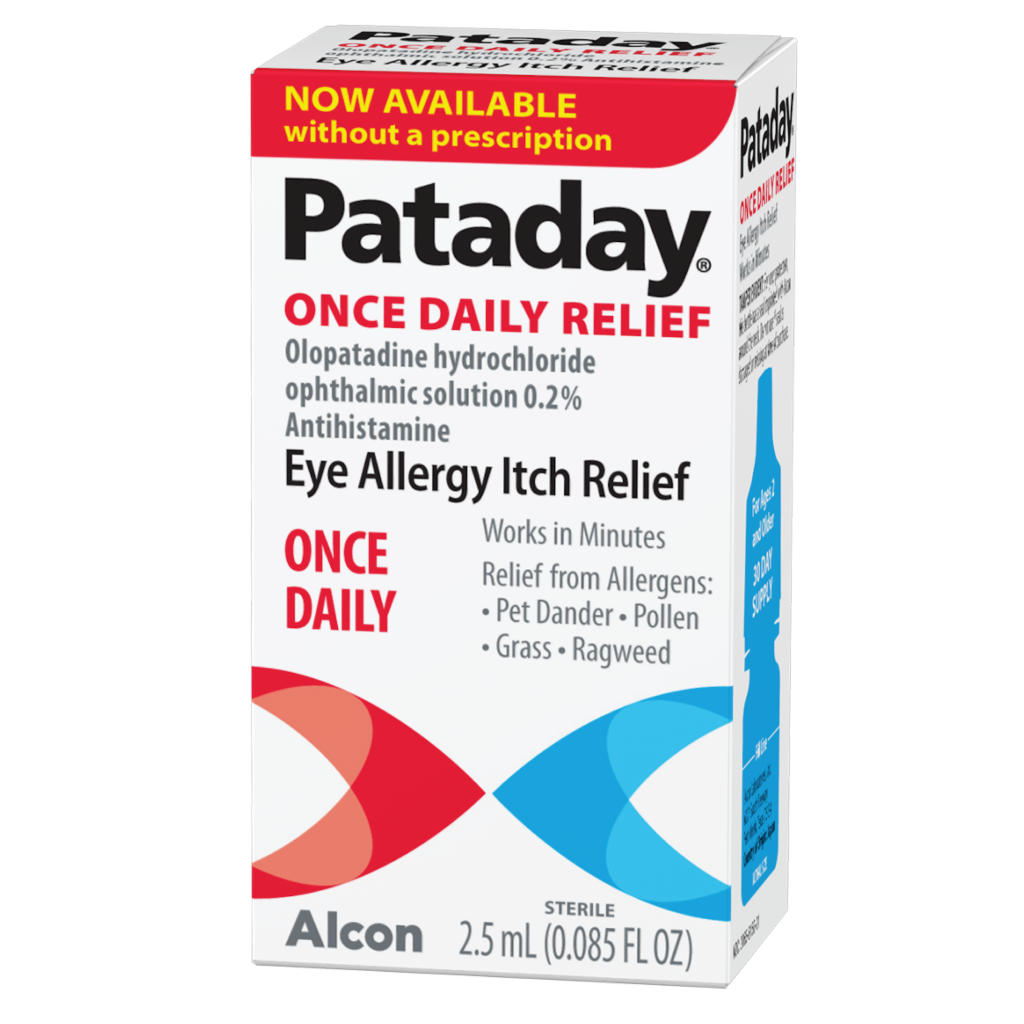Anti-allergy medications are incredibly common in our everyday lives, especially if you are an allergy sufferer. Here are some basic pieces of information about what is inside the medication:
Histamine
Histamine is a compound found in the human body, as well as other animals and plants. In terms of allergies, it is involved in the body’s immune response to foreign antigens, and it contributes to the swelling often received as a result of an allergic reaction. Histamine helps heal the body as a result of injury, but in the case of allergies, this response is normally due to something harmless as a result of the body’s hypersensitivity.
Allergies

If you are allergic to something, you may experience a range of different reactions. These can include swelling of the eyes, throat and other body parts, itchiness, redness, rashes, and hives. Allergic reactions can range in severity, with the most severe cases leading to anaphylaxis, which is potentially life-threatening. Humans can be allergic to anything from dust and animal hair, different foods, pollen, and even water. Many people with serious allergies carry an Epi-Pen, which contains epinephrine and needs to be used in emergencies to treat serious reactions. Antihistamines alone cannot be used in this situation, as they are not rapid enough, among other reasons.

Uses
Antihistamines are used to treat many allergies and are present in various forms of medications. Common allergy treatments include topical creams for hives and rashes, which help soothe itching and redness. Eyes are a commonly affected area during an allergic reaction, and products such as Pataday can be used to calm the area, helping with swelling, watering, and discomfort. What is Pataday? This is an allergy treatment in the form of eye drops, which are applied directly to the eye for effective relief. It can be prescribed by a doctor or can be available over the counter. Antihistamines are also available in tablet form, nasal spray, and injections, and can also be used to treat colds and flu.
Common Allergens
Most allergies are developed in childhood, and some studies have shown that some children may outgrow them, while others will not. Therefore, it’s always important to have some basic knowledge of allergies, regardless if you have them or not. Knowing the signs and symptoms and how to administer treatment is incredibly important and beneficial to yourself and those around you. A few of the most common allergens are: nuts, wheat, fish, eggs, pollen, insect bites and stings, dust mites, and animal dander. Being aware of some of these common allergy triggers will help you accommodate those with allergies, allowing food and environments to be prepared accordingly.
These are just a few basic pieces of information regarding allergies and antihistamines, and you should always consult your doctor or pharmacist for medical advice. It is always a good idea to invest in first aid training from professionals and get as much access to correct and high-quality information as possible. Understanding the human body, its responses, and the medications we use is not only interesting but important to look into, both for your own benefit and for the benefit of those around you.

